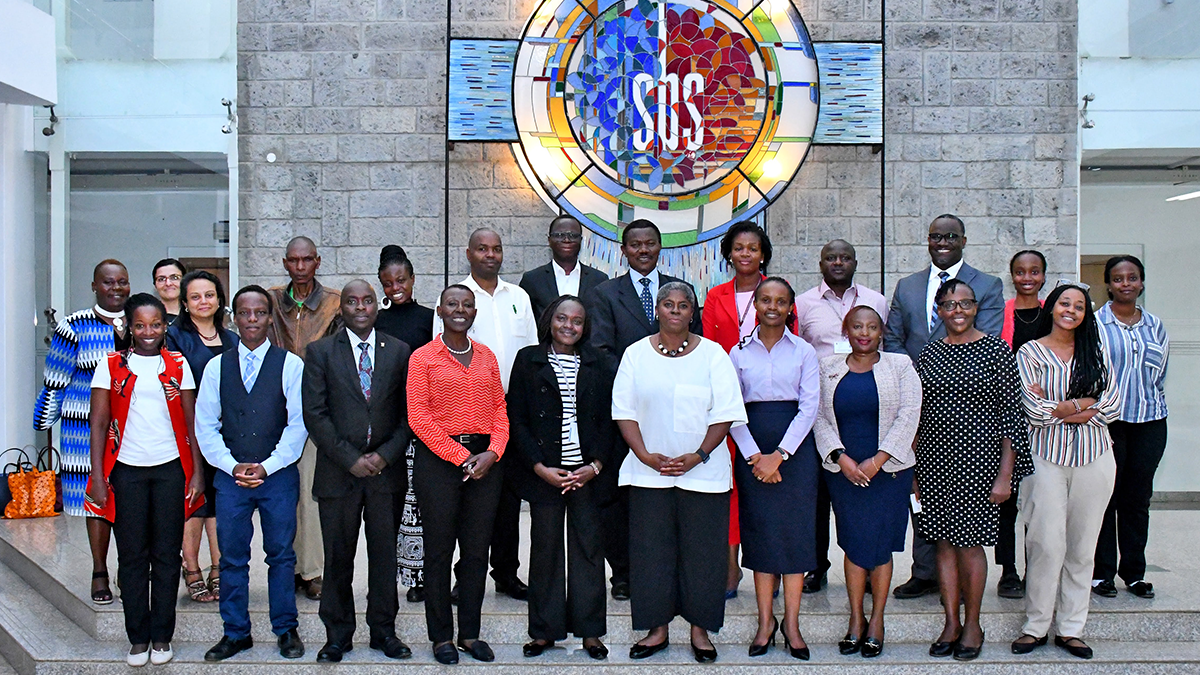Exploring the Intersection of Environmental, Social and Governance (ESG) Considerations in Global Finance: Insights from Martine Valcin
In a thought-provoking event held yesterday evening, Martine Valcin, Global Manager, Corporate Governance ESG Advisory, Knowledge and Learning at the International Finance Corporation (IFC), delivered a captivating public lecture on the evolving landscape of Environmental, Social, and Governance (ESG) considerations and their profound impact on global finance.
The session shed light on the pivotal role of ESG factors in shaping the strategies and operations of the International Finance Corporation (IFC). Throughout the lecture, Martine Valcin shared valuable insights into the ESG perspectives of the IFC, underscoring the organization’s commitment to integrating sustainability principles into its investments and operations. By delving into real-world examples, Martine highlighted how ESG considerations have become integral to the IFC’s decision-making processes, driving positive social and environmental outcomes while also generating financial returns.
The sessions sparked further riveting discussions on emerging ESG trends in the global finance sector. These trends include:
Integration of ESG into investment strategies.
There is a growing recognition among investors that integrating ESG factors into investment decisions can lead to better risk management and long-term financial performance. Asset managers are increasingly incorporating ESG criteria into their investment processes, from screening out companies with poor ESG practices to actively seeking out investments with strong ESG credentials.
Impact investing,
which seeks to generate positive social and environmental outcomes alongside financial returns, is gaining momentum. Investors are directing capital towards projects and companies that address pressing global challenges, such as climate change, social inequality, and access to healthcare and education.
Stakeholder engagement and activism.
Investors are becoming more vocal in advocating for ESG-related changes within companies. Shareholder activism and engagement with company management on ESG issues, such as climate change policies, diversity and inclusion practices, and corporate governance reforms, are on the rise.
Climate-related financial disclosures.
With growing concerns about the financial risks posed by climate change, there is increasing pressure on companies to disclose their climate-related risks and opportunities. Initiatives such as the Task Force on Climate-related Financial Disclosures (TCFD) are driving standardization and transparency in climate reporting, enabling investors to make more informed decisions.
Green bonds and sustainable finance instruments.
The issuance of green bonds and other sustainable finance instruments is surging as investors seek opportunities to finance environmentally friendly projects. These financial products enable investors to allocate capital towards renewable energy, energy efficiency, sustainable infrastructure, and other climate-friendly initiatives.
ESG data and metrics standardization.
Standardization of ESG data and metrics is gaining importance as investors seek reliable and comparable information to assess ESG performance across companies and industries. Efforts to develop common ESG reporting frameworks and metrics, such as those by the Sustainability Accounting Standards Board (SASB) and Global Reporting Initiative (GRI), are underway to address this need.
Regulatory and policy changes
are shaping the ESG landscape, with governments around the world introducing measures to promote sustainable finance and ESG integration. This includes initiatives such as mandatory ESG reporting requirements, tax incentives for sustainable investments, and regulations to combat greenwashing.
Focus on social factors.
While environmental factors have traditionally received more attention in ESG considerations, there is a growing focus on social factors such as diversity and inclusion, employee welfare, human rights, and community engagement. Investors are recognizing the importance of these issues in driving long-term value and are incorporating them into their investment strategies.
A particularly intriguing aspect of the discussion centered around the transformative potential of artificial intelligence (AI) in the finance sector. Martine emphasized the innovative tools developed and utilized by the IFC, showcasing how AI technologies are being leveraged to enhance ESG practices and drive impactful change. The session culminated with a showcase of MALENA, an AI tool developed by the IFC, designed to streamline ESG practices and bolster the organization’s sustainability efforts.
As we navigate an increasingly complex and interconnected world, events such as these serve as invaluable platforms for knowledge exchange and collaboration. By harnessing the power of ESG principles and innovative technologies like AI, we can drive positive change and build a more sustainable and equitable future for all. Strathmore University remains committed to facilitating dialogue and partnerships that contribute to the advancement of sustainable finance and responsible business practices.
Article by Juliet Hinga
Share This Story, Choose Your Platform!
Your journey to business excellence starts here. Subscribe today and be at the forefront of innovation and leadership.















